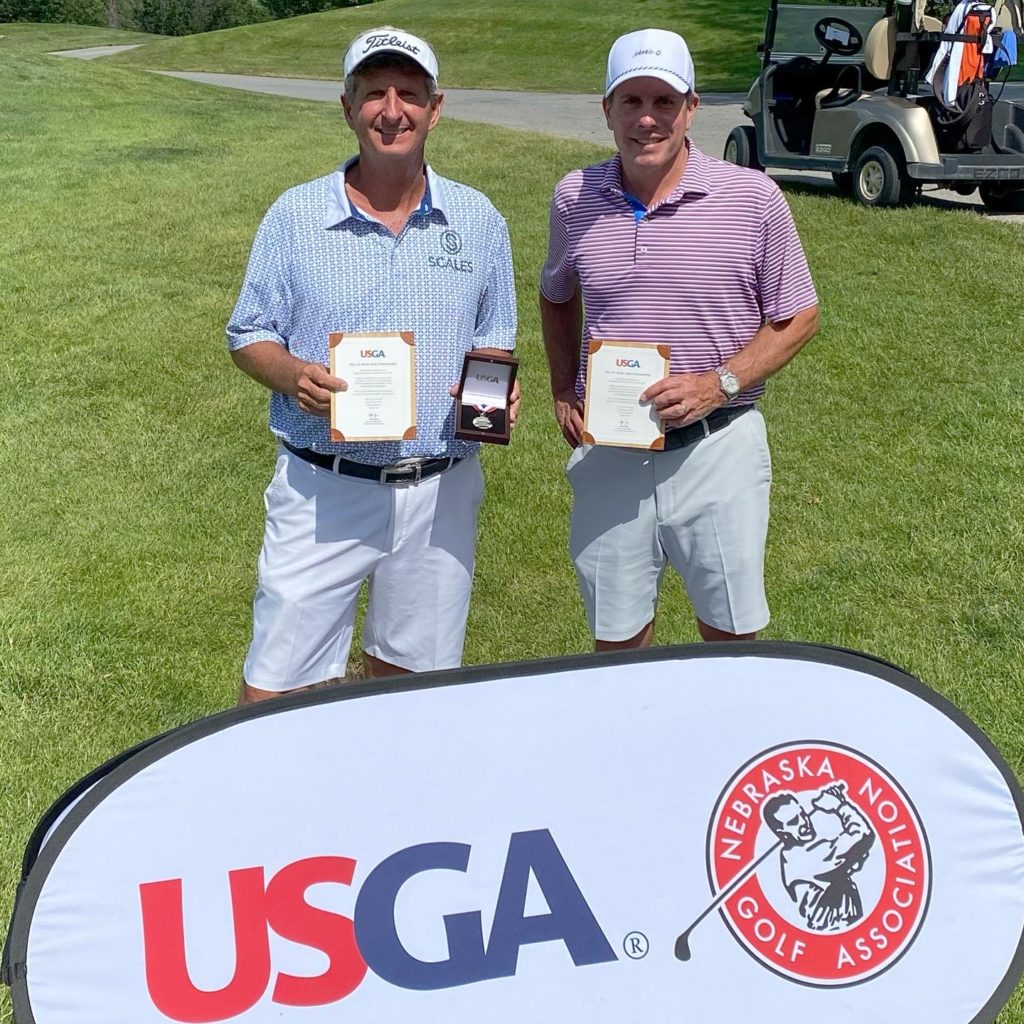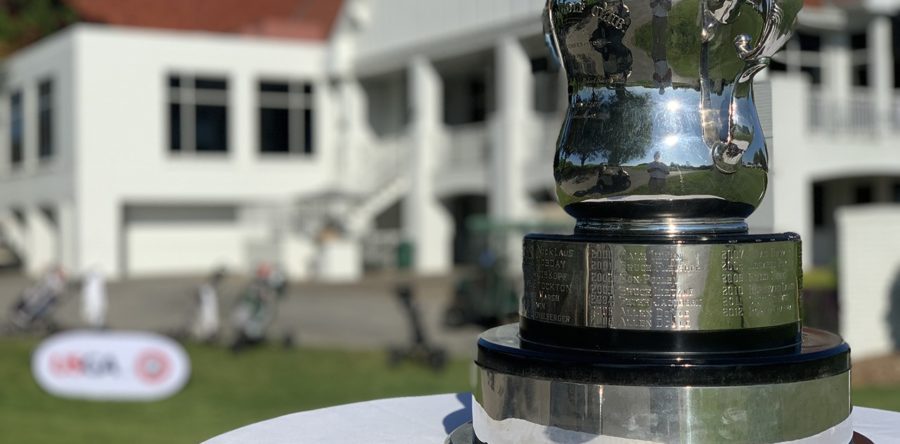Byrd, Gogel Qualify for U.S. Senior Open
OMAHA (June 7, 2021) – Robin Byrd of Satellite Beach, Florida and Matt Gogel of Mission Hills, Kansas advanced to the 2021 U.S. Senior Open Championship on Monday through qualifying at Happy Hollow Club in Omaha.
Byrd earned medalist honors with a round of 69 (-2), while Gogel was just a stroke behind at 70 (-1) to claim the second and final spot. They'll both play next at the 41st U.S. Senior Open just up the road at Omaha Country Club.

Robin Byrd (left) of Satellite Beach, Florida and Matt Gogel (right) of Mission Hills, Kansas qualified for the 41st U.S. Senior Open.
Byrd, a longtime professional who has been competing on the PGA Tour Champions since 2011, opened his round on fire. With birdies on four of his first seven holes, Byrd made the turn in 31 (-4). After a bogey on No. 11 and a double-bogey on No. 14, he rebounded with back-to-back birdies on Nos. 15 and 16 to get his lead back. A closing bogey gave him a back nine 38 (+2), but scoring proved to be difficult on Monday at Happy Hollow and he remained the low score.
Gogel, 50, is in his first year as a senior golfer, and has plenty of success as a professional. He owns one PGA Tour victory, the 2002 AT&T Pebble Beach Pro-Am, and six more Korn Ferry Tour wins, including the 1998 Omaha Classic at Champions Run.
Gogel also had a strong start, with birdies on two of his first three holes. After dropping back to even-par with a couple bogeys, Gogel rolled in birdies on two of his last three holes to finish off his round of 70 (-1) and best three players at even-par.
Michael McCoy of Norwalk, Iowa, Jonathan Kaye of Phoenix, Arizona and Charlie Stevens of Wichita, Kansas all shot rounds of 71 (E). After a playoff, McCoy claimed the first alternate spot, while Stevens took the second alternate spot.
Byrd has played in three previous U.S. Senior Opens, including 2013 at Omaha Country Club where he missed the cut. This will be Gogel's first appearance. The 41st U.S. Senior Open is scheduled for July 8-11, 2021 at Omaha Country Club.
For full results and more, click the button below.
About the NGA
The Nebraska Golf Association, founded in 1966, is comprised of all members of public and private clubs and/or municipal or regional golf associations which utilize an approved handicap service recognized by the USGA and provided by the NGA. Our mission is to uphold and promote the game of golf and its values to all golfers in Nebraska. Among the duties of the Association include governance of member clubs and service as their handicapping and course rating authority, conduct of state golf championships, local USGA qualifying & other notable competitions, promotion of junior golf, presentation of worthwhile educational programs and support of allied golf organizations in Nebraska. The Nebraska Golf Association is an Allied Golf Association of the USGA and carries out core services including Handicap Administration and Oversight, Course Rating, Rules of Golf and Rules of Amateur Status, Tournaments and USGA Championship Qualifiers and USGA Initiatives and Community Programs.
About the USGA
The USGA celebrates, serves and advances the game of golf. Founded in 1894, we conduct many of golf's premier professional and amateur championships, including the U.S. Open and U.S. Women's Open. With The R&A, we govern the sport via a global set of playing, equipment and amateur status rules. Our operating jurisdiction for these governance functions is the United States, its territories and Mexico. The USGA Handicap System is utilized in more than 40 countries and our Course Rating System covers 95 percent of the world's golf courses, enabling all golfers to play on an equitable basis. The USGA campus in Liberty Corner, New Jersey, is home to the Association's Research and Test Center, where science and innovation are fueling a healthy and sustainable game for the future. The campus is also home to the USGA Golf Museum, where we honor the game by curating the world's most comprehensive archive of golf artifacts. To learn more, visit usga.org.


